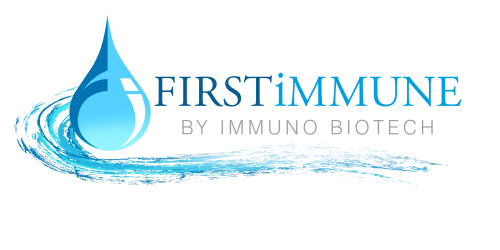Dr Yamamoto states GcMAF does not have side effects. Our experiences agree: GcMAF has shown no side effects of its own. That’s not surprising – your body expects to have it.
But your rebuilt immune system may in some cases give you minor secondary side effects, but larger side effects with late stages of cancer, and occasionally severe effects with autism, HIV and ME/CFS, as viruses fight back against the rebuilt immune system’s attack.
People’s reactions to a rebuilt immune system are very different – from zero, which is typical, to severe in a minority of cases.
Inside two hours GcMAF will begin to affect your immune system, and (if your immune system is at least partially active) a shot of 0.1ml or more may cause tiredness which usually lasts 3-4 hours. You may feel better than usual for the first 2-3 weeks as the immune system wakes up.
GcMAF is a protein that your body should have made on its own, and there is a tiny chance (under 0.1%) you may have an allergic reaction, usually within the first 2 hours. If in doubt start with a 0.05ml dose, then 0.1 after 12 hours. If you do have a reaction, it can be treated with anti-histamine tablets, which can usually be bought from a chemist without prescription (hay fever is an allergic reaction).
We have seen positive, but not yet negative autoimmune reactions.
Other minor side effects may include the symptoms of a fever (4 hours of hot flushes) as the immune system goes to work.
Most never notice anything more than an improving sense of well being.
If cancer, after the end of the first week of GcMAF you may notice the immune system has begun to attack tumours; at the end of three weeks it will be attacking at full strength, but you may not be aware of this.
The tumours should swell slightly initially as the immune system inflames and attacks them. Markers will rise initially as the tumours break up. If prostate cancer, GcMAF initially causes PSA numbers to rise for 2-3 months for the same reason.
If you are a responder, stage 4 or terminal cancer is not necessarily a bar to success.
But by comparison with chemotherapy or radiation treatments, the side effects are trivial.
If HIV, the IRIS disease may cause you to get worse before you get better. We don’t do well here, because the viruses conceal themselves with biofilms and block the VDR.
In 30% the diseases fight the immune system back rather as IRIS does in HIV, but not as bad. Nutrition is really important. You need the fully blown caveman diet of meat, fish vegetables and lipids. If you are on processed food, vegan, vegetarian or fast food diets, you are unlikely to make progress.
Occasionally there is initial pro-inflammatory response with worsening of asthma-like symptoms; it is the best indicator of an M1 shift. That is activation of pro-inflammatory macrophages that do the job of fighting viruses and disease. Although unwelcomed, this is the best indication that GcMAF is doing its job and it will eventually clear the body of the disease.
If in brain cancer you get headaches after taking GcMAF for just over a week, this may be intercranial pressure, which is serious. Treat with mannitol and diuretics (steroids / cortizone as a last resort.) Reduce the dose to 0.05 ml. Contact us immediately – we can put you in touch with a doctor who specialises in this.
GcMAF needs 8 weeks to begin to reduce tumour mass – after that, your symptoms should be receding.
With the above exceptions, and as a general rule of thumb, if the average participant is capable of a 40 minute brisk walk in the sunshine each day, even if they are terminal stage 4 and a high responder, they should have no difficulty surviving the war, and typically will, at most, occasionally experience the symptoms of a fever – hot flushes and tiredness.
Please note these are our experiences so far; we are not doctors and you should take GcMAF under the supervision of a doctor. If at any time you feel you want to discontinue Gc MAF, please do so. We do NOT suggest you abandon any life saving treatment. If you are on rigorous medications, always confer with your specialist and ask for progress reports before making any changes to your treatment regime
If you are taking GcMAF, please check this often for new information, as new data comes in.

